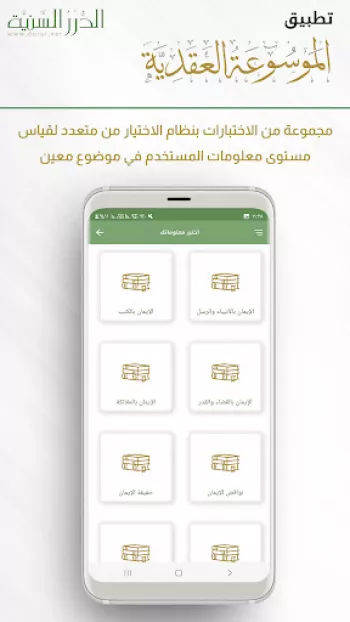Apps Home

Explore the Foundations of Islamic Beliefs
The fundamentals of Islamic beliefs are the core principles and teachings that provide a groundwork for understanding the religion of Islam. These beliefs form a comprehensive framework that guides the spiritual and moral conduct of Muslims. Exploring these basics is a pursuit that deepens one's understanding of the faith, allowing for a richer appreciation and practice.
The Concept of Tawhid
The principal belief in Islam is the concept of Tawhid, which means the oneness of God. It's the assertion that there is no deity but Allah, alone and without partners. This central tenet influences all aspects of a Muslim's life, embodying the belief in a singular, all-powerful, and merciful God. Tawhid is pivotal as it defines a Muslim's relationship with God, asserting His supremacy and uniqueness in worship and adoration.
Belief in Prophets and Messengers
Islamic beliefs encompass faith in the prophets and messengers sent by Allah to guide humanity. Muslims believe in many prophets, including figures such as Adam, Noah, Abraham, Moses, Jesus, and Muhammad (peace be upon them). Muhammad is considered the last prophet, the "Seal of the Prophets," sent to convey the final and complete revelation of God's guidance contained in the Quran.
The Quran and Hadith
The Quran is the holy book of Islam, believed to be the literal word of God as revealed to Prophet Muhammad. It serves as the primary source of guidance for Muslims in all aspects of life. Alongside the Quran, the Hadith—collections of the sayings and actions of Prophet Muhammad—provides additional context and examples for living a life in accordance with Islamic principles.
Belief in the Afterlife
A fundamental aspect of Islamic beliefs is faith in the afterlife. Muslims believe in a life after death where individuals are held accountable for their deeds on earth. This belief in the Day of Judgment motivates Muslims to lead ethically sound and responsible lives, in alignment with the teachings of their faith, in hopes of attaining eternal paradise.
Implementation of Beliefs
The practice of these beliefs is facilitated through various forms of worship and daily acts of devotion. Muslims engage in rituals such as prayer (Salah), fasting during the month of Ramadan, giving alms (Zakat), and performing Hajj (pilgrimage to Mecca) to strengthen their faith and fortify their commitment to Islamic principles.
Technological Applications for Learning
To foster deeper understanding, various modern tools can assist in exploring Islamic beliefs. For instance, there are comprehensive and free applications available that encompass extensive resources on Islamic creed, including discussions on Tawhid and other elements of faith. These apps are designed with features like advanced search options, font size control, and night reading mode to enhance accessibility and engagement.
Available Platforms for Islamic Learning Tools
While engaging with such resources, users can download applications tailored for different platforms, providing convenient access to Islamic content. Unfortunately, download links are unavailable in this context, yet these applications are commonly accessible for major operating systems.
Conclusion
Exploring the fundamentals of Islamic beliefs not only enriches the knowledge of practicing Muslims but also fosters greater understanding and respect among peoples of diverse faiths. It is through these foundational teachings that individuals can develop a profound connection with their spirituality, aligning their lives with the principles of justice, compassion, and devotion as prescribed in Islam.
شاركنا رأيك
بريدك الالكتروني لن يتم نشره.
All Rights Reserved © Apps Home 2025
































Nacer Tahri
تطبيق ممتاز أنصح الجميع بتحميله وبارك الله في القائمين عليه.
Do it Now
تطبيق رائع جداً وسهل ومفيد للغاية
Mohamed Anwar (MhmdAnwr)
Excellent
Has R.AlN.
Very good
SAIF -MN
Very good